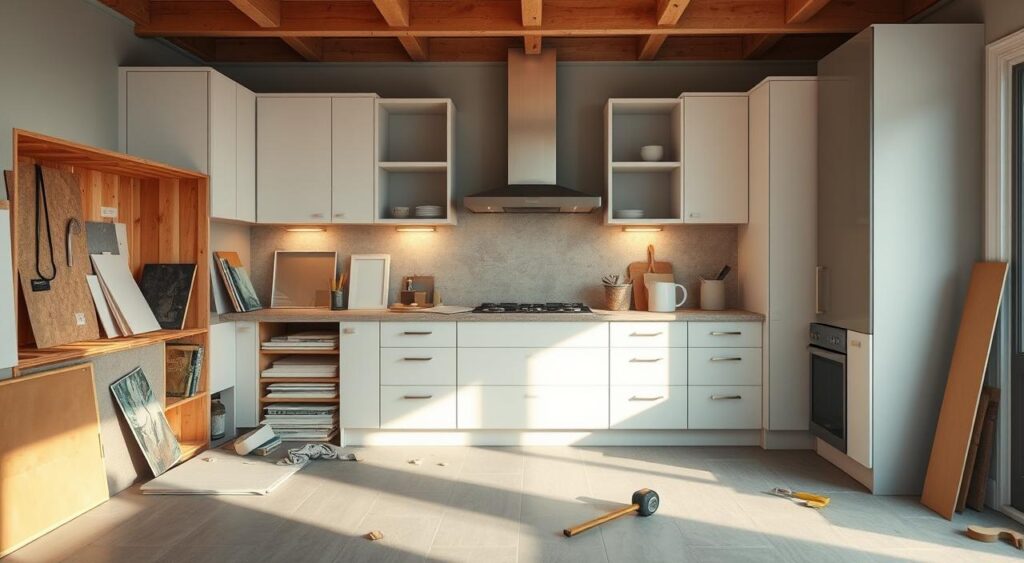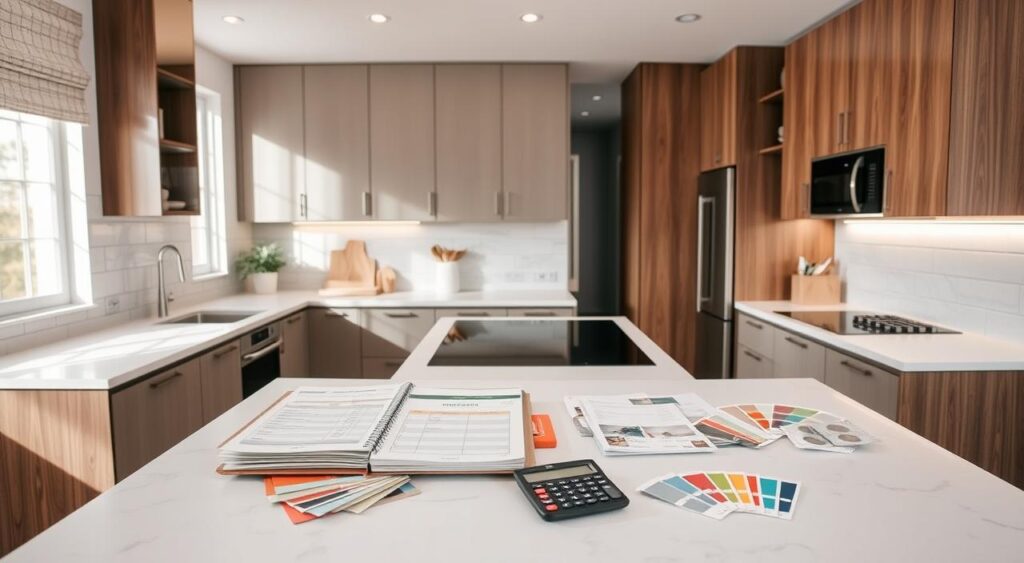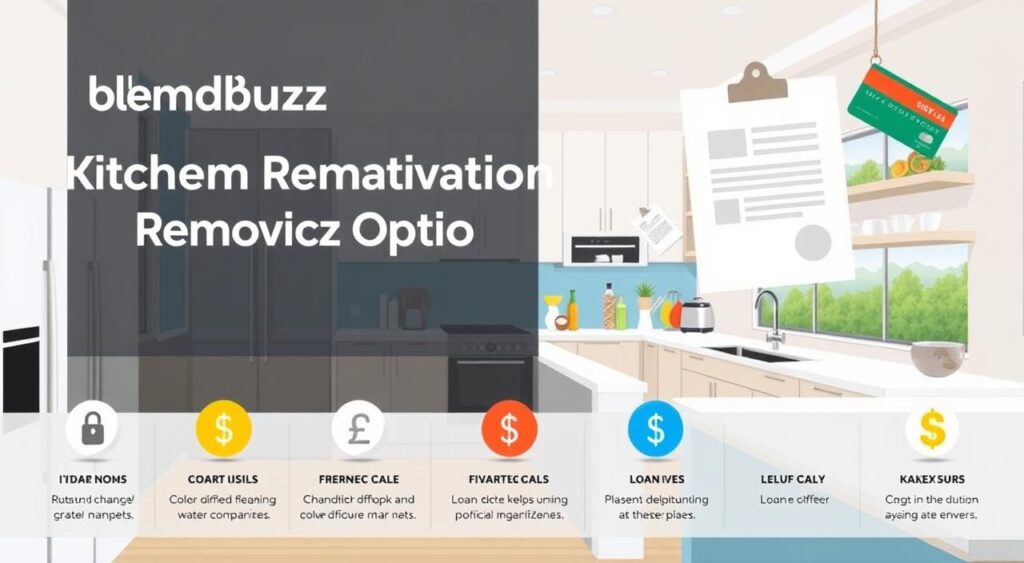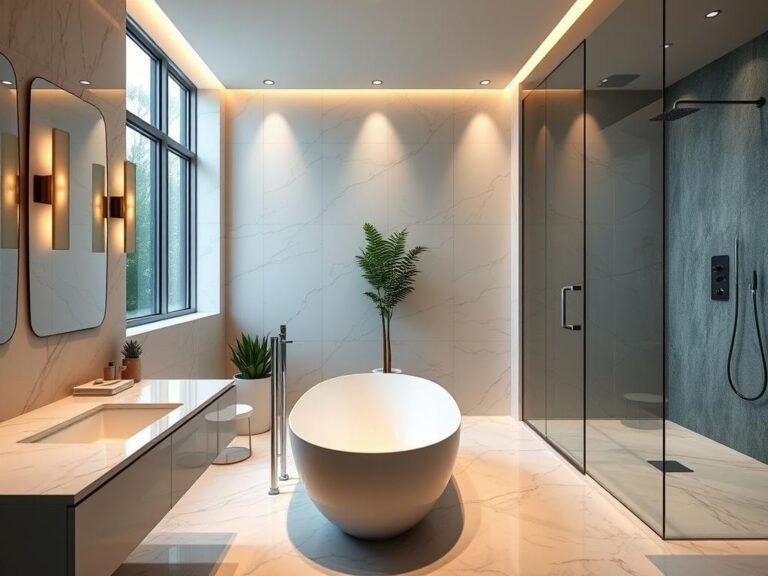
Understanding kitchen renovation costs is key. The average cost can be a big investment. Having a solid plan is crucial to keep your project on track.
When planning your kitchen renovation, consider all factors. Materials, labor, permits, and inspections all affect the cost. Knowing the basics helps you budget and make smart choices.
In this guide, we’ll cover budgeting, material selection, and labor costs. By the end, you’ll know the average cost of kitchen renovation. You’ll be ready to start your project with confidence and stay within your budget.
Understanding Kitchen Renovation Cost Basics
When planning a kitchen renovation, it’s key to know what affects the cost. The cost can change a lot based on materials, labor, and where you live. For example, cities like New York and Los Angeles often cost more than other places.
The average cost for a kitchen renovation can range from $10,000 to $50,000 or more. This depends on how big the project is. The cost also changes based on where you are in the country.
Factors That Influence Total Costs
Many things can affect the total cost of a kitchen renovation. This includes the cost of materials, labor, and permits. The type and quality of materials used can greatly change the cost. High-end materials and custom designs can make the cost go up.
National Average Cost Ranges
The cost of a kitchen renovation can vary based on its size and complexity. A small renovation might cost between $10,000 to $20,000. But a big renovation could cost $30,000 to $50,000 or more.
Regional Price Variations
Prices can also change based on where you are. For example, labor and materials might cost more in cities than in rural areas. This affects the overall cost of a kitchen renovation.
Knowing these factors and average costs can help you plan your budget better. It can also help you make smart choices for your renovation project.
| Location | Average Renovation Cost |
|---|---|
| Urban areas | $30,000 to $50,000 |
| Rural areas | $20,000 to $30,000 |
Planning Your Kitchen Renovation Budget
When planning a kitchen renovation, it’s key to think about the costs and set a realistic budget. The cost can change a lot, based on the kitchen size, materials, and labor. Start by making a list of what’s most important to you and then decide how to spend your money.
A good budget helps avoid unexpected costs and keeps your project on track. Think about not just the upfront costs but also any hidden expenses like plumbing or electrical work. By focusing on what’s most important and looking into financing options, you can make a budget that fits your needs.
To understand the costs better, here are some estimated prices: | Category | Estimated Cost | | — | — | | Cabinets | $3,000 – $10,000 | | Countertops | $2,000 – $5,000 | | Flooring | $1,000 – $3,000 | | Appliances | $1,000 – $3,000 | Knowing the average costs and planning your budget well can help you create a kitchen that’s both beautiful and functional. It will meet your needs and stay within your budget.
Breaking Down Material Costs
When planning a kitchen renovation, it’s key to think about the average cost. This can change a lot based on the materials and appliances you pick. Kitchen renovation costs can quickly add up. But, knowing what each part costs helps you make choices that fit your budget.
The cost of materials is a big part of kitchen renovation costs. For example, cabinetry can cost between $2,000 and $10,000 or more. This depends on the material, style, and brand. Here’s a breakdown of estimated costs for different materials:
| Material | Estimated Cost |
|---|---|
| Cabinetry | $2,000 – $10,000 |
| Countertops | $1,000 – $5,000 |
| Flooring | $500 – $3,000 |
| Appliances | $1,000 – $5,000 |
Cabinetry and Hardware Expenses
Cabinetry is a big expense in a kitchen renovation. The cost can vary a lot based on the material, style, and brand. You might spend between $2,000 to $10,000 or more for custom or high-end cabinets.
Countertop Material Options and Prices
Countertops are also key in a kitchen renovation. The cost can range from $1,000 to $5,000 or more. This depends on the material and brand you choose.
Labor Costs and Contractor Fees
When planning your kitchen renovation, it’s key to think about labor costs and contractor fees. These can greatly affect your budget. The National Kitchen and Bath Association says labor can be up to 30% of the total cost.
Looking for ways to cut labor costs without lowering quality is important. You’ll want to find a contractor who fits your budget and needs.
Understanding what affects labor costs is crucial. The project’s complexity, the contractor’s experience, and your home’s location all play a part. By comparing prices from different contractors, you can find the best deal.
To save on labor costs, try negotiating the contract and choosing a fixed-price deal. Being flexible with your timeline can also help. Hiring a reputable contractor ensures the job is done right, saving you from costly mistakes.
Being informed and proactive helps manage your kitchen renovation costs. This way, you can get the beautiful, functional space you want.
Hidden Expenses to Consider
When planning a kitchen renovation, it’s key to think about all costs. Kitchen renovation costs can add up quickly. Hidden expenses can surprise you and throw off your budget.
One big hidden expense is permit and inspection fees. These can cost between $500 to $2,000 or more. It depends on where you live and the size of your project.
Another cost is setting up a temporary kitchen. You might need to rent appliances and equipment. This can be expensive, even more so if you have a big family or cook at home a lot. The cost of a temporary kitchen varies, but it’s important to include it in your budget.
Unexpected structural issues can also pop up during a kitchen renovation. For example, removing walls or installing new flooring might reveal hidden damage. These surprises can be hard to budget for, but it’s important to be ready for them. By planning for these hidden costs, you can make your kitchen renovation go smoothly and stay within budget.
Permit and Inspection Fees
Permit and inspection fees are a must for any kitchen renovation. These costs vary based on your location and project size. They can range from $500 to $2,000 or more. Make sure to include these fees in your budget to avoid surprises.
Temporary Kitchen Setup Costs
Setting up a temporary kitchen can be a big expense. The cost of renting appliances and equipment varies. But it’s important to include it in your budget. This way, you can have a successful and stress-free renovation.
Unexpected Structural Issues
Unexpected structural issues can come up during a kitchen renovation. It’s important to be ready for these surprises to avoid going over budget. By planning for these hidden costs, you can ensure a successful and stress-free renovation.
Cost-Saving Strategies for Your Renovation
When planning a kitchen renovation, it’s key to think about costs and how to cut them without losing quality. Consider using old cabinets or countertops in new ways. You can also find second-hand items like appliances or lighting to save money and reduce waste.
Another smart move is to talk to contractors and suppliers to get the best prices. You can also try DIY projects like painting or installing flooring to save on labor. These steps can help you save thousands on your kitchen renovation.
Here is a simple table to help you estimate the average cost of kitchen renovation: | Category | Average Cost | | — | — | | Cabinets | $3,000 – $10,000 | | Countertops | $2,000 – $5,000 | | Flooring | $1,000 – $3,000 | | Appliances | $1,000 – $3,000 |

By keeping an eye on costs and using these strategies, you can make a beautiful and useful kitchen without spending too much. Always look for the best prices and don’t hesitate to negotiate. This way, you can get a kitchen renovation that fits your budget.
Luxury vs Budget-Friendly Options
When planning a kitchen renovation, you face many choices based on your budget. The cost can vary a lot, and it’s key to know where to spend and save. With careful planning, you can make a stunning and useful kitchen without spending too much.
The cost of materials is a big factor. High-end choices like granite, hardwood, and custom cabinets are pricey but offer a luxurious feel. Yet, options like quartz, laminate, and stock cabinets can give a similar look but cost less.
| Material | High-End Option | Budget-Friendly Alternative |
|---|---|---|
| Countertops | Granite | Quartz or Laminate |
| Flooring | Hardwood | Laminate or Ceramic Tile |
| Cabinets | Custom | Stock or Semi-Custom |
Where to Splurge and Where to Save
Finding a balance between what you want and what you can afford is crucial. By focusing on your needs and the average cost, you can achieve a kitchen that’s both beautiful and practical. This way, you can enjoy your new kitchen without overspending.
Timeline Impact on Your Budget
When planning a kitchen renovation, the timeline is key to your budget. The project’s length can greatly influence costs. Longer projects mean higher costs for rentals and possible price hikes in materials.
The cost of renovating a kitchen can change based on how complex and long the project is. Renovating during the off-season can save you money. This is because contractors and suppliers often give discounts then. For example, renovating in winter can be cheaper than in peak season.
Knowing what affects your project’s timeline and costs is vital. By planning smart, you can cut costs and stay on budget. Keep in mind seasonal price changes too. This way, you can renovate your kitchen without overspending.
Cost Variations by Project Duration
The project’s length can really affect costs. Shorter projects might cost more in labor, as workers rush to finish. Longer projects could save on labor but might see material prices rise.
Seasonal Price Fluctuations
Seasonal changes can also impact your renovation costs. Prices for materials and labor can shift with the seasons. Knowing this can help you plan your renovation to take advantage of off-season deals.
Financing Your Kitchen Renovation
Financing your kitchen renovation has several options. The cost can be high, so it’s key to find the right method. Costs vary based on project scope, materials, and labor.
Home equity loans are a common choice. They let you borrow against your home’s value. Rates range from 4% to 8% or more, based on your credit score.
Personal loans are another option. They can be secured or unsecured, with rates from 6% to 36% or more.

Think about the return on investment (ROI) when financing your kitchen. A good renovation can boost your home’s value. On average, a kitchen renovation can recoup 80% to 100% of its cost at resale.
By choosing the right financing and planning well, your renovation costs can be justified. This ensures your kitchen renovation is a smart investment for the long term.
| Financing Option | Interest Rate | Repayment Term |
|---|---|---|
| Home Equity Loan | 4% – 8% | 5 – 15 years |
| Personal Loan | 6% – 36% | 2 – 7 years |
Understanding your financing options and ROI helps make informed decisions. This ensures your kitchen renovation is a worthwhile investment.
Understanding Long-Term Value Impact
When you think about kitchen renovation costs, remember the long-term benefits. The cost can vary, but the return on investment is worth it. The National Association of Realtors says a kitchen renovation can add up to 102% of its cost back when you sell your home. This means a good kitchen renovation can boost your home’s value and give you a big return.
Choosing materials and designs that appeal to many people is key. This makes your home more attractive to potential buyers. It helps increase your home’s resale value.
Using high-quality materials and expert workmanship is crucial. It makes your kitchen last longer and adds more value. A well-designed kitchen also improves your home’s overall value.
The cost of a kitchen renovation can range from $10,000 to $50,000 or more. But, with the chance to get up to 102% of the cost back, it’s a smart investment. By planning and executing your renovation well, you’ll get a beautiful and functional kitchen that adds long-term value and enjoyment.
| Renovation Element | Average Cost | Return on Investment |
|---|---|---|
| Cabinets | $3,000 – $10,000 | 80-100% |
| Countertops | $2,000 – $5,000 | 70-90% |
| Appliances | $1,000 – $3,000 | 50-80% |
DIY vs Professional Installation Cost Comparison
Choosing between DIY or hiring a pro for your kitchen renovation is a big decision. The cost can vary a lot, based on the project’s size and materials. Costs include labor, materials, and tools.
Doing it yourself can save on labor costs but takes a lot of time and effort. You’ll also need special tools. Hiring a pro ensures quality work but costs more.
Tools and Equipment Expenses
Tools and equipment costs can add up fast, mainly for DIY projects. You’ll need things like power saws, drills, and sanders. Prices vary by quality and brand, from hundreds to thousands of dollars.
Skill Level Requirements
Your skill level and experience also play a part. If you’re not good with complex projects, hiring a pro is safer. They ensure the job is done right.
| Installation Type | Cost Range |
|---|---|
| DIY Installation | $5,000 – $15,000 |
| Professional Installation | $10,000 – $30,000 |
The choice between DIY and professional depends on your situation and what you value most. Knowing the average costs helps you decide what’s best for you.
Making Your Kitchen Renovation Investment Count for Years to Come
When your kitchen renovation is finished, think about how to keep it great for a long time. Regular upkeep and updates can keep your kitchen looking and working well for years. This way, your investment will pay off for a long time.
Begin with a cleaning and care plan for your cabinets, countertops, and appliances. Check for any problems, like loose parts or worn spots, and fix them right away. This will help keep your kitchen looking as good as new.
Also, keep up with the latest kitchen renovation costs and trends. Small changes, like new light fixtures or a fresh backsplash, can make a big difference. By staying current, your kitchen will always look and feel great.






